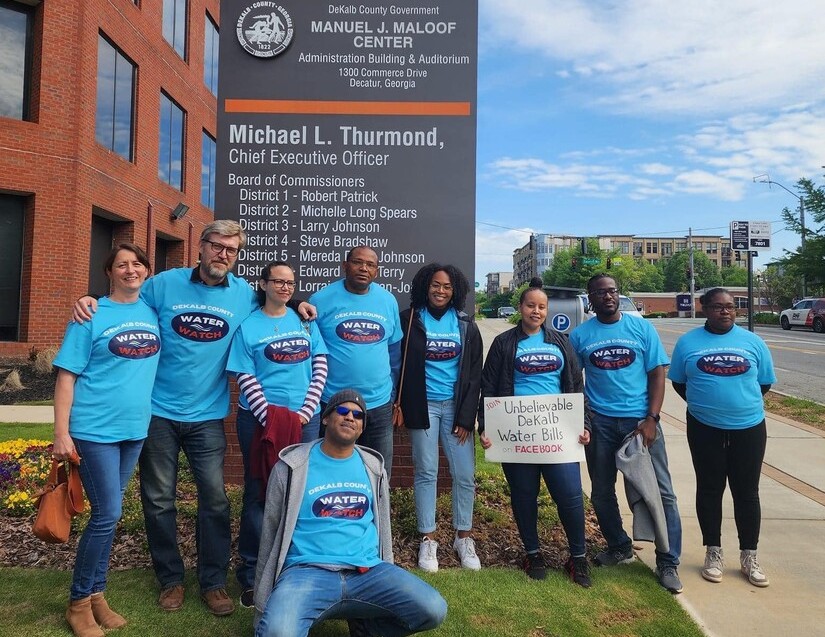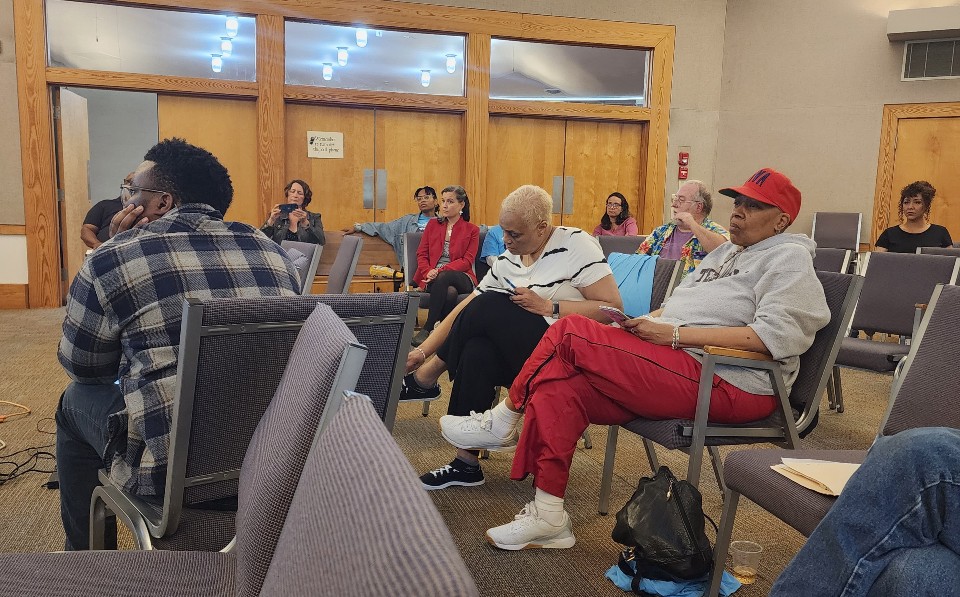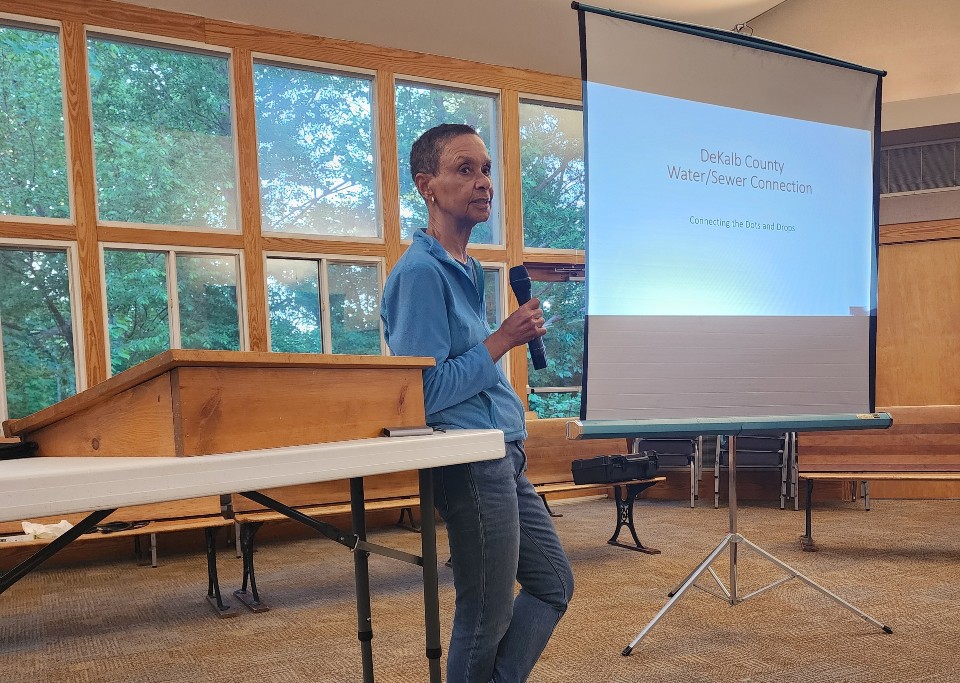
DeKalb Water Watch residents and AFSC staff.
Since 2014, residents in DeKalb County, Georgia have received outrageously high water bills- sometimes amounting to tens of thousands of dollars. In 2016, Dekalb County enacted a five-year-long moratorium on water shutoffs as it worked to resolve the issue. Although leaks in the public line, faulty water meters, and neglected infrastructural damage explained the county’s water bill spikes, Dekalb residents were forced to bear the burden of exorbitant bills. Some people even faced liens on their homes.
In 2022, the county lifted the moratorium, promising improvement. Still, single-family homes continue to be billed for upwards of 700,000 gallons of water- enough to do 35,000 loads of laundry- resulting in obscene water bills. Today, the process for residents to dispute bills remains flawed and often fruitless. The county often offers no explanation for bill calculations, no timeline for resolution, and no communication before shutting off someone’s water.
In 2016, residents founded Dekalb Water Watch to stop the county’s exploitative water billing system. Last month, AFSC and the NAACP Legal Defense Fund joined, the group to host “Past Due: A Teach-In on Dekalb’s water crisis and steps towards resolution.” The teach-in opened with Cymeve Garrett, a renter in Dekalb who shared how her water had been shut off that same week as a result of an $80,000 water bill.

Teach-in with DeKalb Water Watch. Photo: Tim Franzen/AFSC
Unfortunately, stories like Cymeve’s are not uncommon in Dekalb County. Since the end of the moratorium, more than 2,000 households have had their water shut off. Now, more and more residents are faced with two options: lose their homes, or be tethered for the foreseeable future to one of the county’s exorbitant payment plans. Cymeve, who recently lost her job and is a Section 8 voucher recipient, was originally offered a payment plan of greater than $2,000 per month. That amount became $400 per month after being “reduced.”
During the teach-in, Dr. Jacqueline Echols, board president of the South River Watershed Alliance, explored the disproportionate impacts of this injustice on low-income residents of color in DeKalb. In 2010, the county was placed under a federal consent decree with the EPA to repair its sewer pipes. Jacqueline used maps to illustrate how the consent decree violated the Clean Water Act through its designation of “priority” and “non-priority” areas. The “priority” areas, mostly located in the majority-white area of North Dekalb, were given a firm repair deadline by the courts. Meanwhile, South Dekalb, home to the largest concentration of Black residents in Georgia, was left without a deadline and thereby without any guarantees, despite containing nearly 70% of the county’s sewer damage.

Dr. Jacqueline Echols of the South River Watershed Alliance. Photo: Tim Franzen/AFSC
What’s happening in DeKalb County isn’t unique. Last September, a Mother Jones article examined how people of color in the South and across the country are increasingly being made to bear the financial burden of aging water infrastructure that has fallen into disrepair—thanks in large part to the failure of local governments to adequately manage these systems.
But some communities have had success in pushing back. During the teach-in, Sylvia Orduño from The People’s Water Board in Detroit and Mary Grant from Baltimore’s Water4All presented strategies that led to the establishment of water affordability programs for their respective cities. In Detroit, the People’s Water Board used a three-pronged action strategy of public education, policy changes, and court challenges, in addition to enlisting U.N. special rapporteurs to gather crucial information from affected residents. The Water4All coalition successfully lobbied for policies that included the creation of an independent customer advocacy office as well as ending tax sales resulting from water debt.
Our coalition is working hard to bring public awareness and more people into our campaign, so we have power in numbers to win. With each gathering, we are joined by new community members who have been impacted by this issue and more local organizations that want to lend their support.
We look forward to strengthening these relationships and working together to ensure access to affordable water for all community members in DeKalb County.